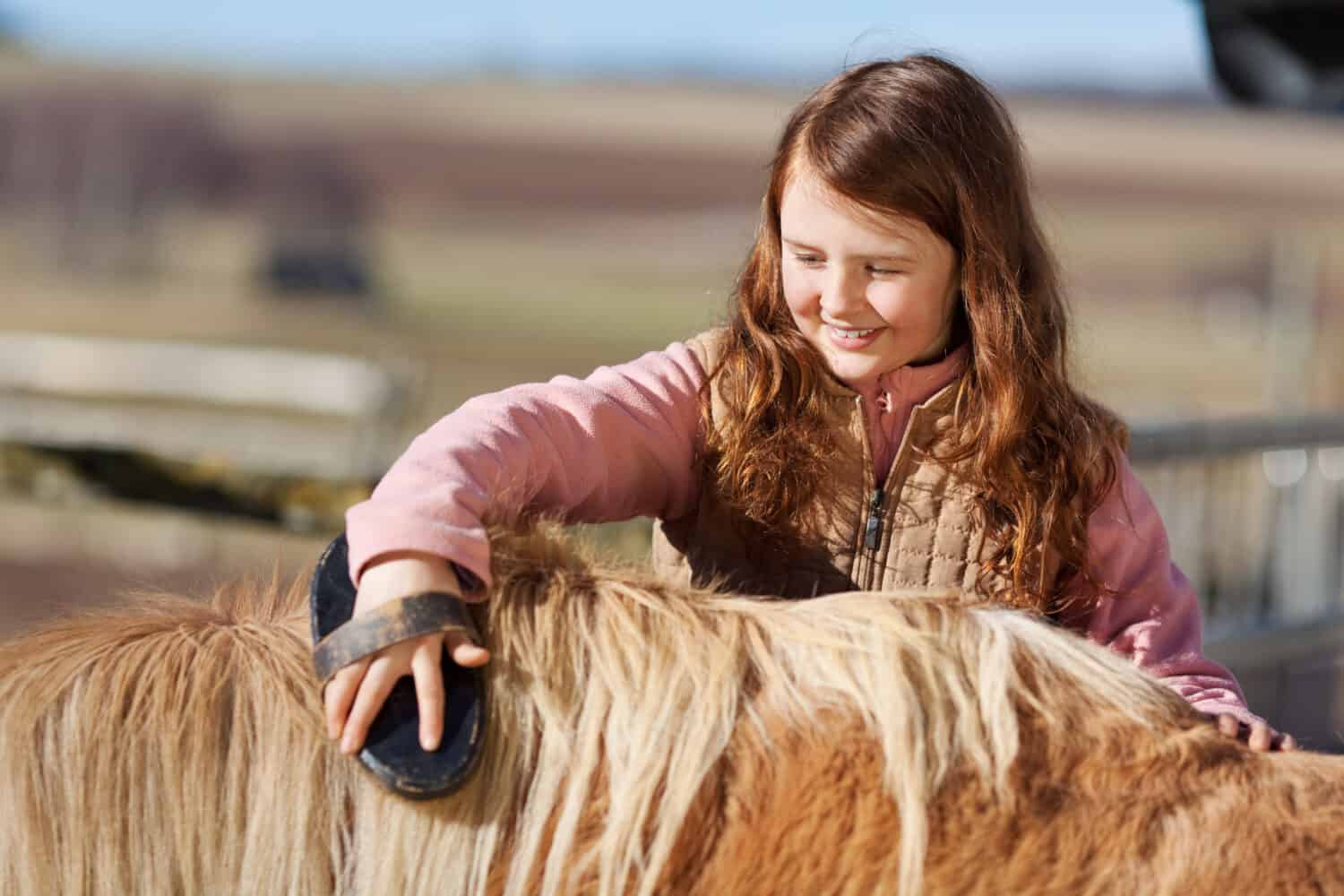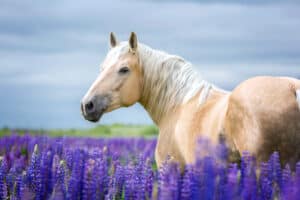Equine therapy has been around for more than 2,000 years. What started as a form of therapeutic exercise transformed into a widespread treatment option and healing modality. Children and adults with mental or physical health challenges like cerebral palsy, post-traumatic stress disorder (PTSD), or addiction see positive benefits from being around horses as well as riding them.
There are different types of equine therapy, but they all either support physical healing or mental recovery. The four categories that treatments fall into include therapeutic horseback riding, hippotherapy, equine-assisted learning, and equine-assisted psychotherapy. Each one serves a specific therapeutic purpose, but the main benefits people can expect are improved balance, confidence, trust, stress levels, and well-being.
So which horse breeds are best suited for this incredibly important job? Let’s find out.
20. Missouri Fox Trotters
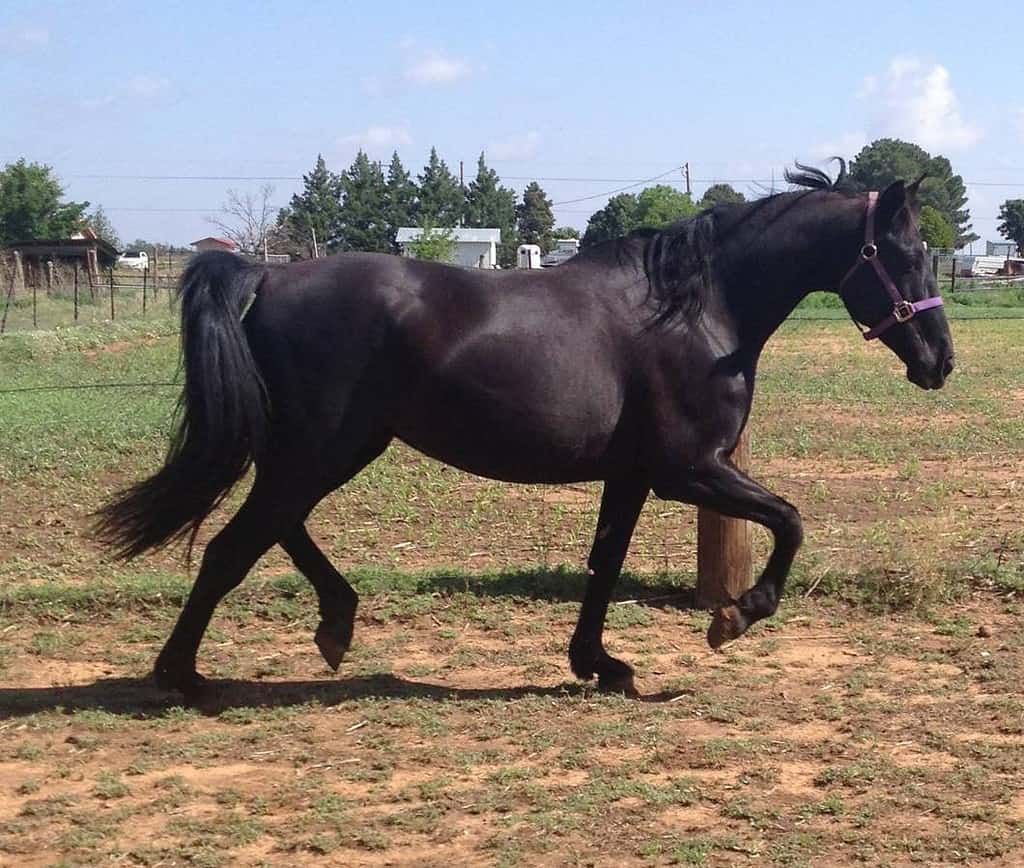
This gaited breed offers a smooth ride.
Gaited breeds are popular equine therapy horses due to their smooth movements and friendly demeanors. Missouri Fox Trotters have both in bucketfuls!
19. Tennessee Walking Horses
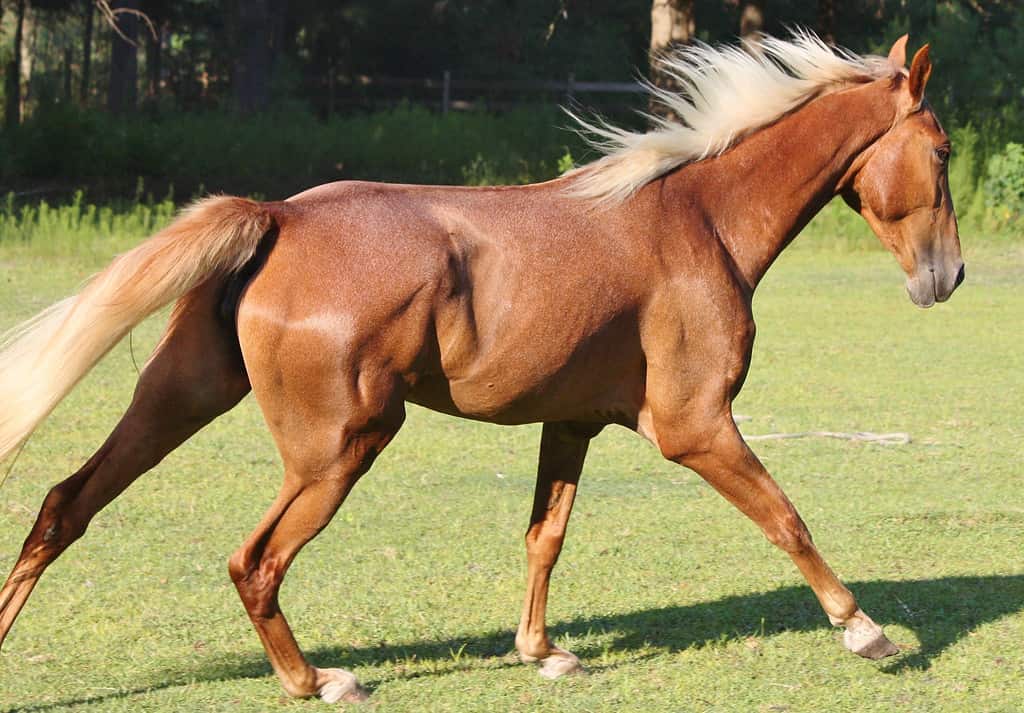
Calm and caring, the Tennessee Walking Horse is great around children and adults.
©aleigha blakley/Shutterstock.com
The Tennessee Walking Horse is not a high-strung breed. Their calm nature makes them wonderful therapy horses for children and adults alike.
18. Morgan Horses
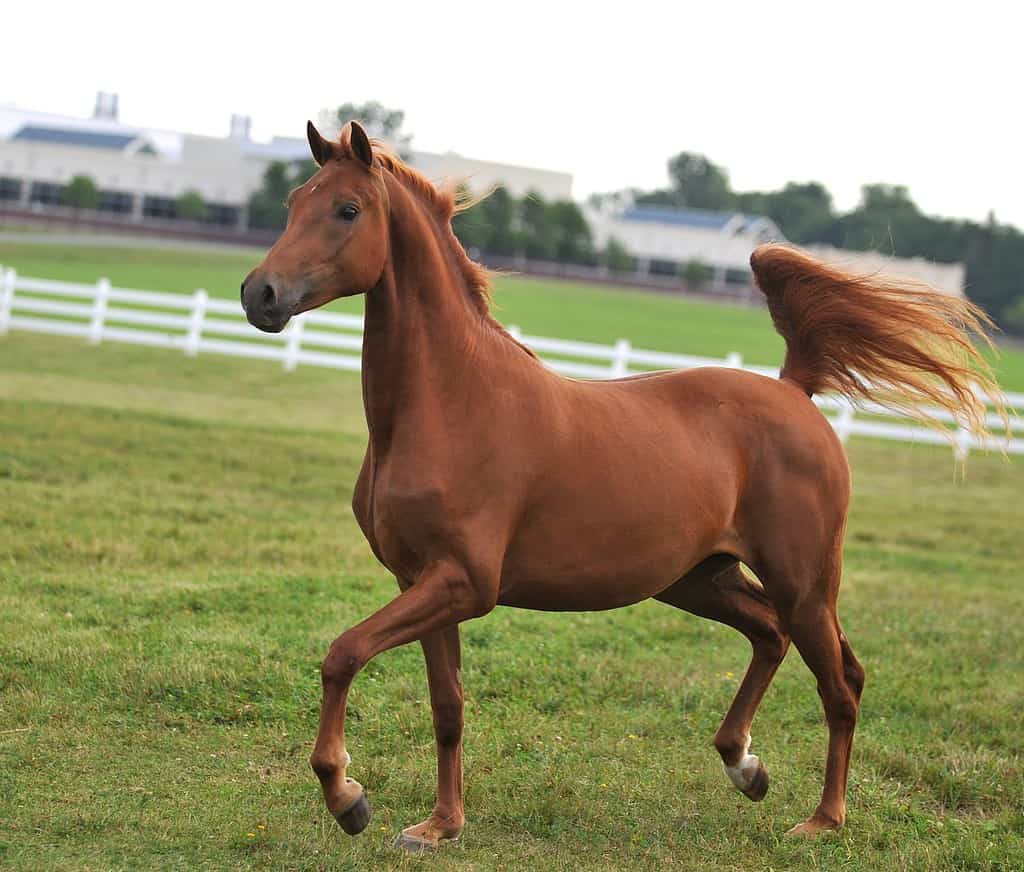
Morgans are the perfect size for equine therapy horses.
©Christopher Crosby Morris/Shutterstock.com
Size is one of the determining factors of breeds used for therapy. Programs typically look for horses that are between 14 and 17 hands high because they’re accessible for children and adults to work with or ride. On average, the Morgan stands around 15 hands high.
17. Rocky Mountain Horses
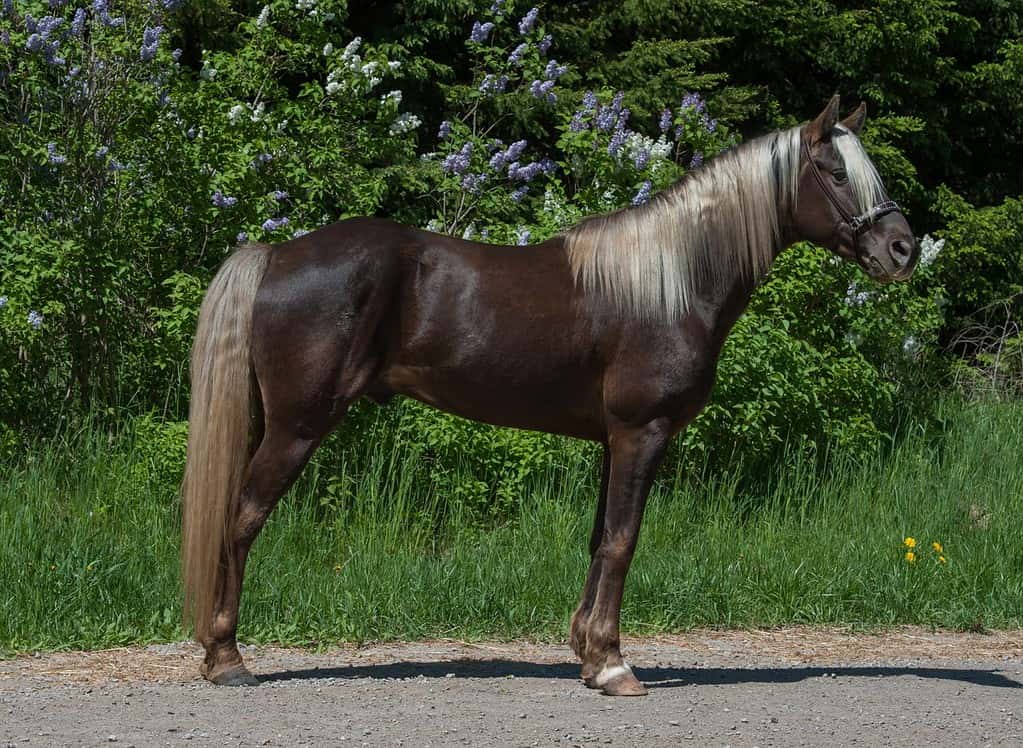
Equine therapy horses need to be gentle and kind. Rocky Mountain Horses are both.
©Shawn Hamilton/Shutterstock.com
This breed is as steadfast as it is smooth. The Rocky Mountain Horse’s gentle nature and gait make it a wonderful addition to equine therapy programs.
16. Thoroughbreds
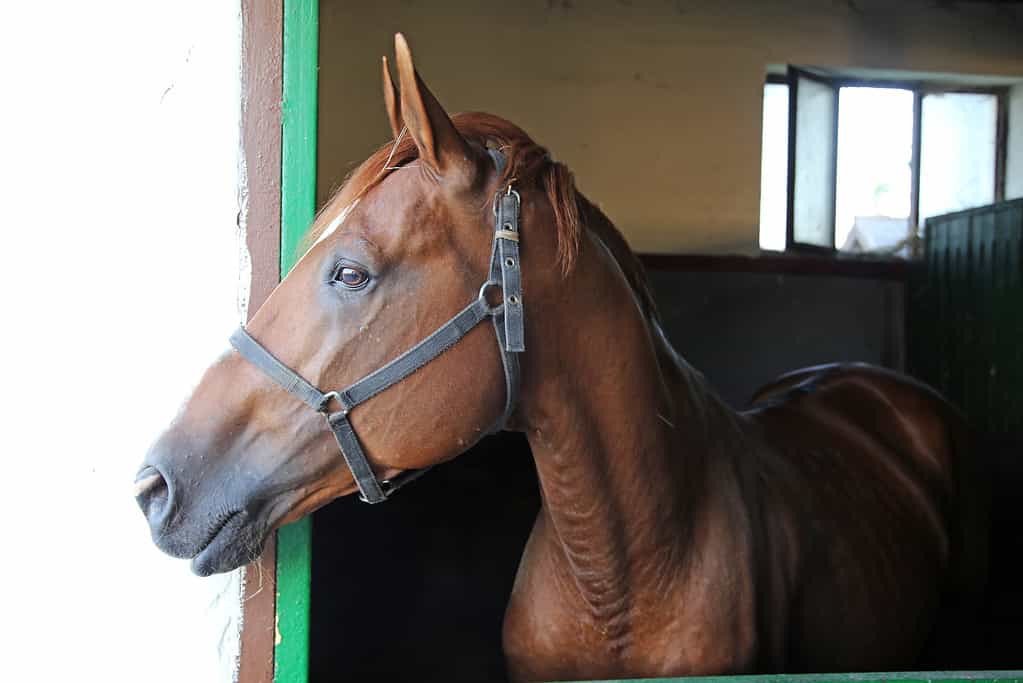
This breed is incredibly intelligent, which makes them easy to connect with.
©acceptfoto/iStock via Getty Images
Thoroughbreds are a somewhat surprising addition to this list. Many view this breed as high-strung and quick, which they are. But off-the-track Thoroughbreds (OTTBs) make some of the best therapy horses. Especially if they had a hard life on the track, they can connect with veterans to overcome trauma together.
15. Gypsy Vanners
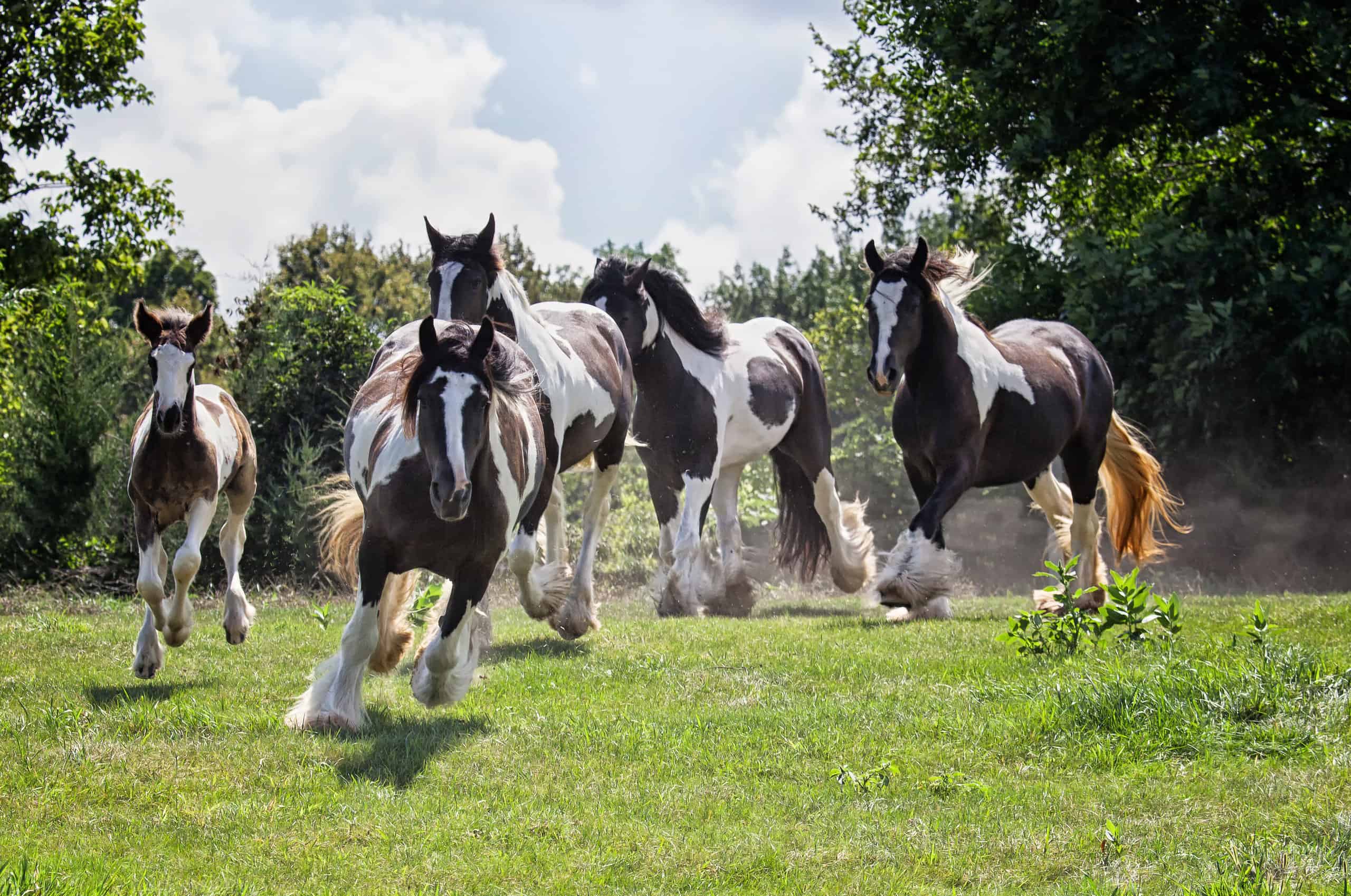
This smaller draft breed is as sweet as it is strong.
©critterbiz/Shutterstock.com
Gypsy Vanners get their level-headed attitude from the draft in them. This is what makes them wonderful equine therapy horses! Their strength and versatility are also useful when pulling carts for people who can’t ride but still want to experience a horse’s healing nature.
14. Fell Ponies
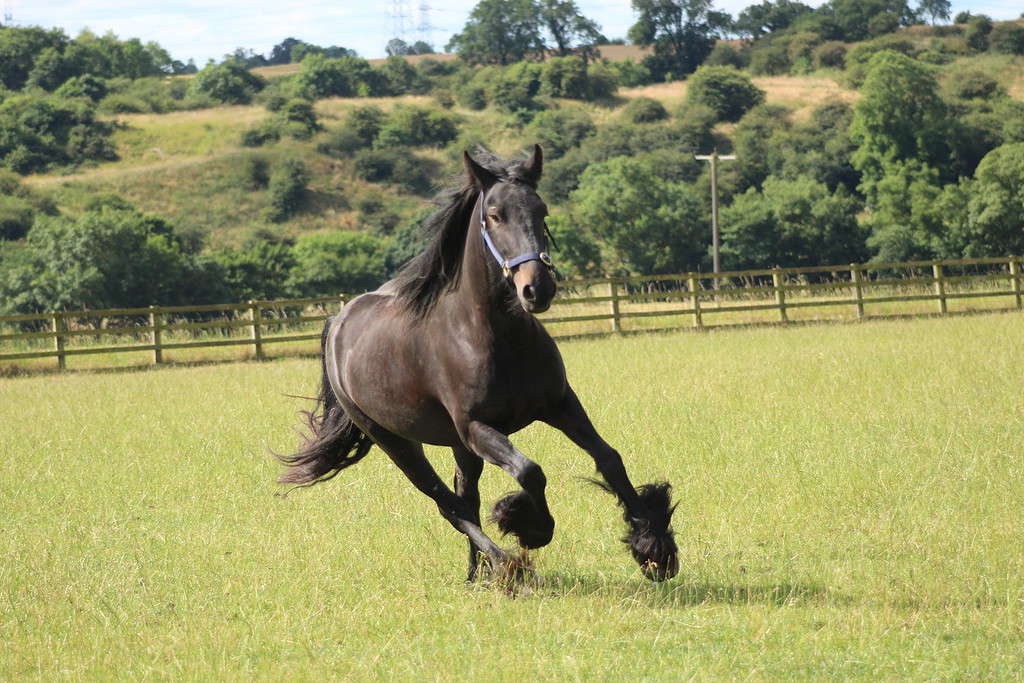
This reliable breed will get you where you need to go safely.
©Hannah Ward - Original
Technically a pony, not a horse, the Fell Pony is the perfect size for a child. This breed is willing, confident, and reliable — all traits you want in a therapy equine.
13. Welsh Ponies
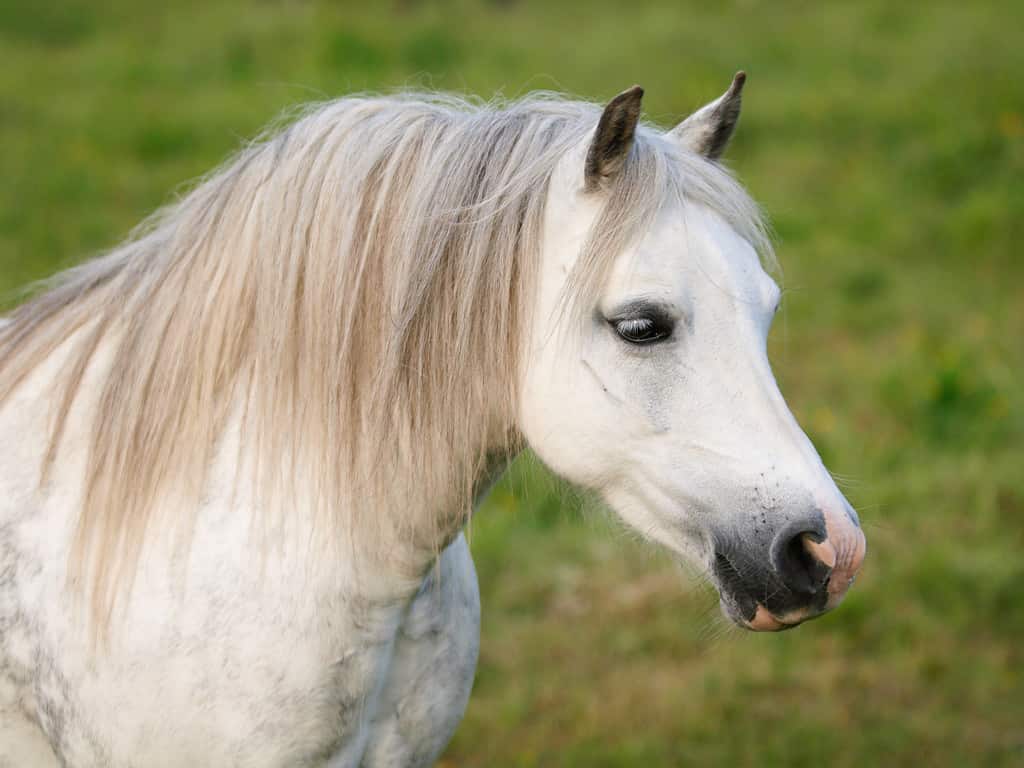
Welshes are sweet, extremely friendly ponies!
©nigelb10/iStock via Getty Images
This breed can do it all, including helping people with mental and physical challenges. Welsh Ponies are strong for their small size yet very friendly and willing. This makes them wonderful companions as well as reliable mounts.
12. Norwegian Fjords
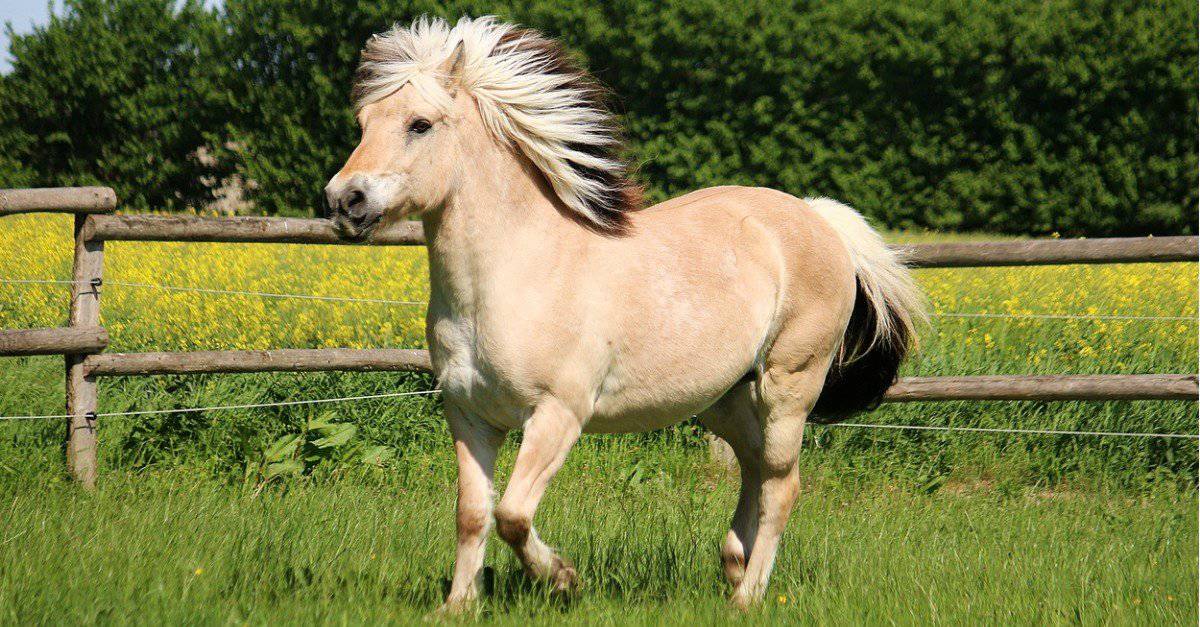
Fjords are a very common breed used in equine therapy because of their size and personality.
©Bianca Grueneberg/Shutterstock.com
Sensible, honest, gentle. These three words sum up the Norwegian Fjord well, but they don’t tell the whole story. Fjords are a popular breed for equine therapy not just because of their docile nature but also because of their surefootedness that keeps everyone safe.
11. Shetlands
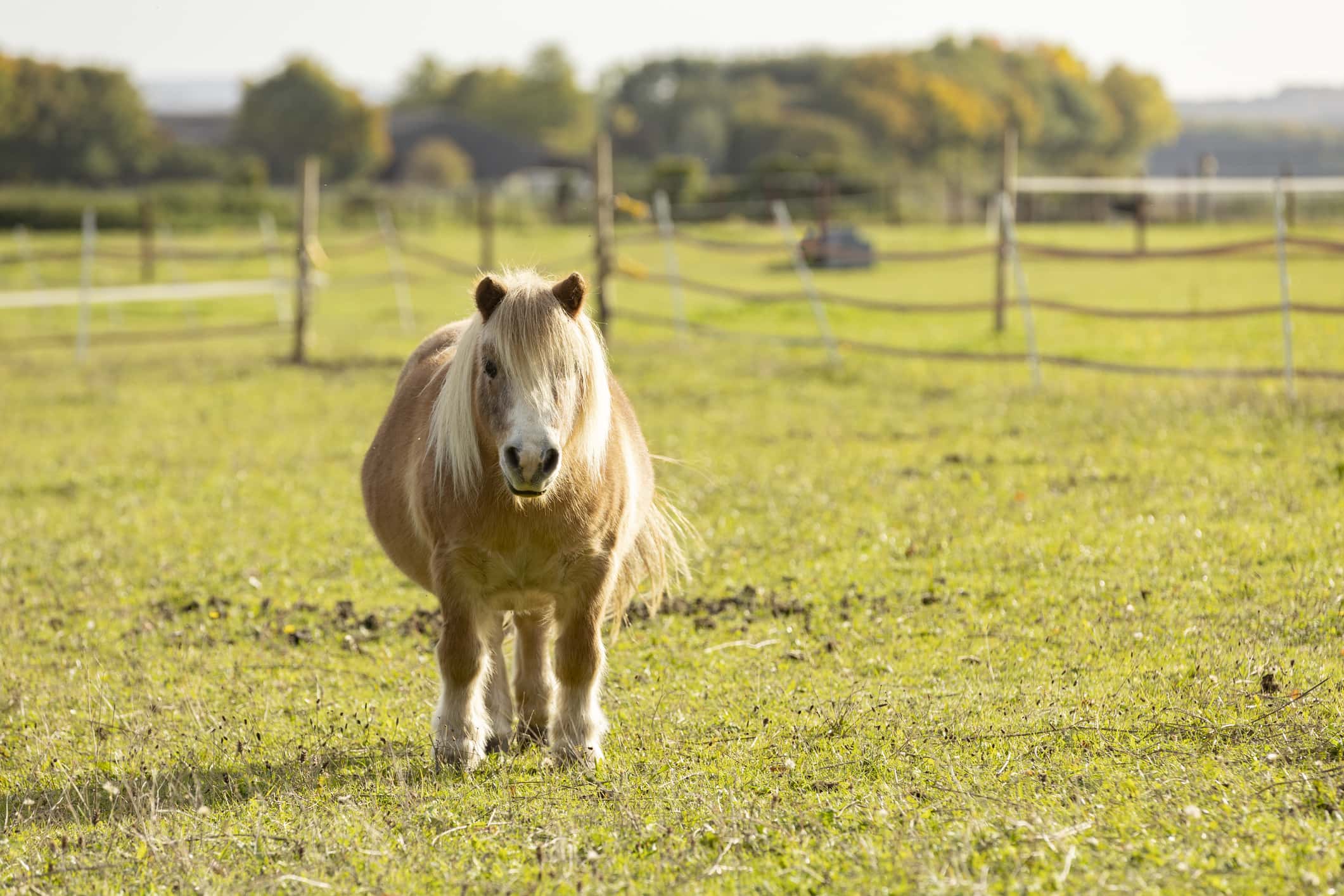
Shetlands are a popular children’s breed, especially in equine therapy.
©Ray Orton/iStock via Getty Images
Equine therapy doesn’t just mean riding horses. Sometimes, it involves other activities such as grooming, tacking up, or cart riding. Shetlands are great for this because of their petite yet powerful stature. Plus, this breed’s cheeky personality gives a boost to everyone’s mood.
10. Koniks
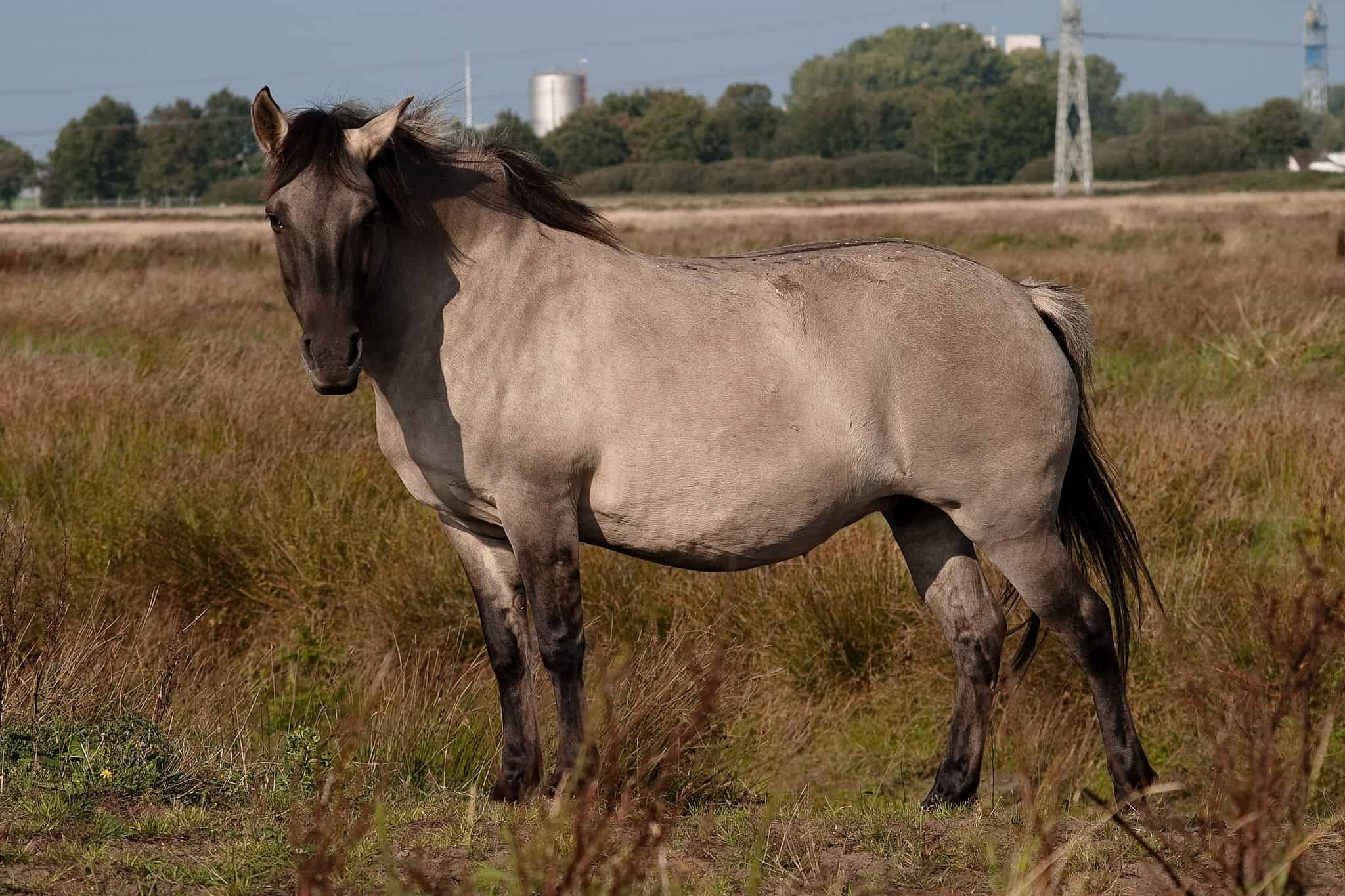
Friendly and patient, Koniks are a wonderfully docile breed.
This Polish breed has a calm disposition, which makes them excellent therapy horses. Treatment doesn’t just include riding time, so they need to be friendly and reliable with plenty of patience. Koniks have it all.
9. Clydesdales
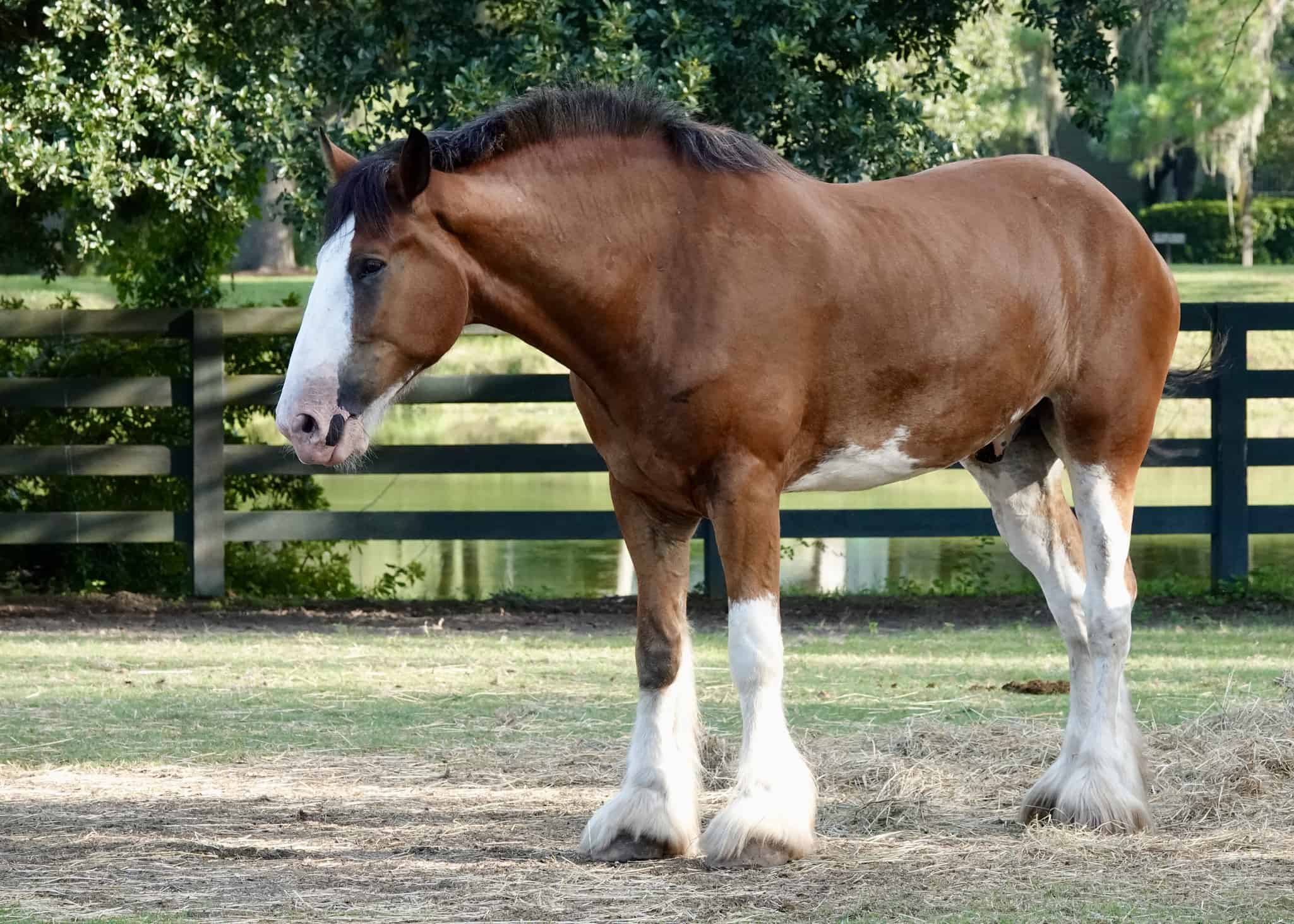
Don’t be afraid of this gentle giant! Clydesdales are sweet-natured horses.
©Chris Klonowski/iStock via Getty Images
Despite their imposing appearance, the most recognizable of the draft breeds are total sweethearts. They are easy to handle, love attention, and have a docile nature to them. All of these traits make them popular equine therapy horses.
8. Belgians
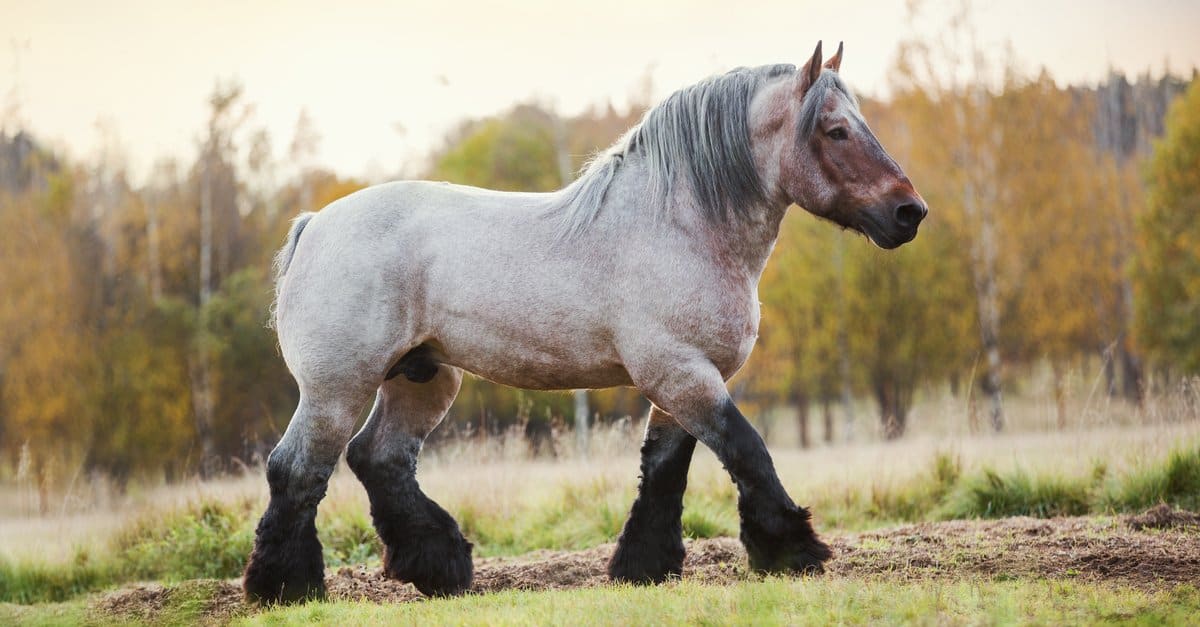
Equine therapy horses need to be smart. Belgians are intelligent and beautiful to boot.
©OlesyaNickolaeva/Shutterstock.com
Another draft on our list, which is no surprise, is the Belgian. Confident and decisive, this breed is self-aware with a good head on its shoulders. You don’t have to worry about Belgians spooking or causing a scene, which is exactly why they’re a common breed used in therapy.
7. Percherons
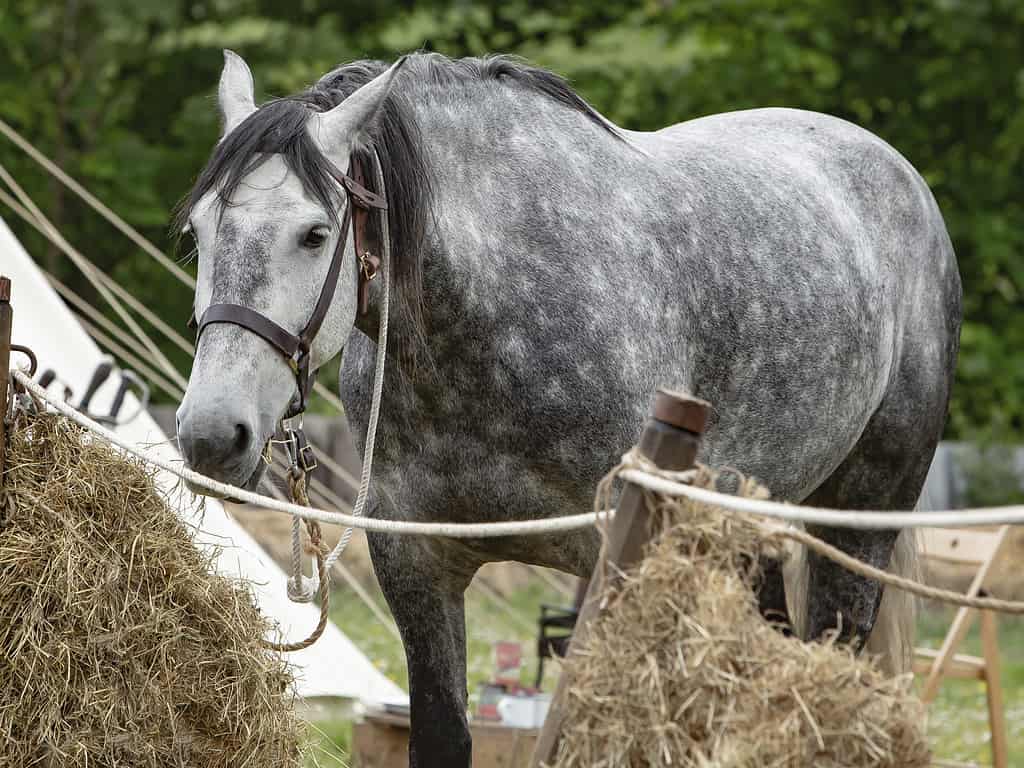
Another draft breed that’s suitable as a therapy horse? Percherons!
©Sonya Kate Wilson/ via Getty Images
Draft breeds like the Percheron are popular for equine therapy… and for good reason! These gentle giants are calm, even-tempered, and patient. All qualities you need in a horse supporting people through recovery.
6. Connemaras
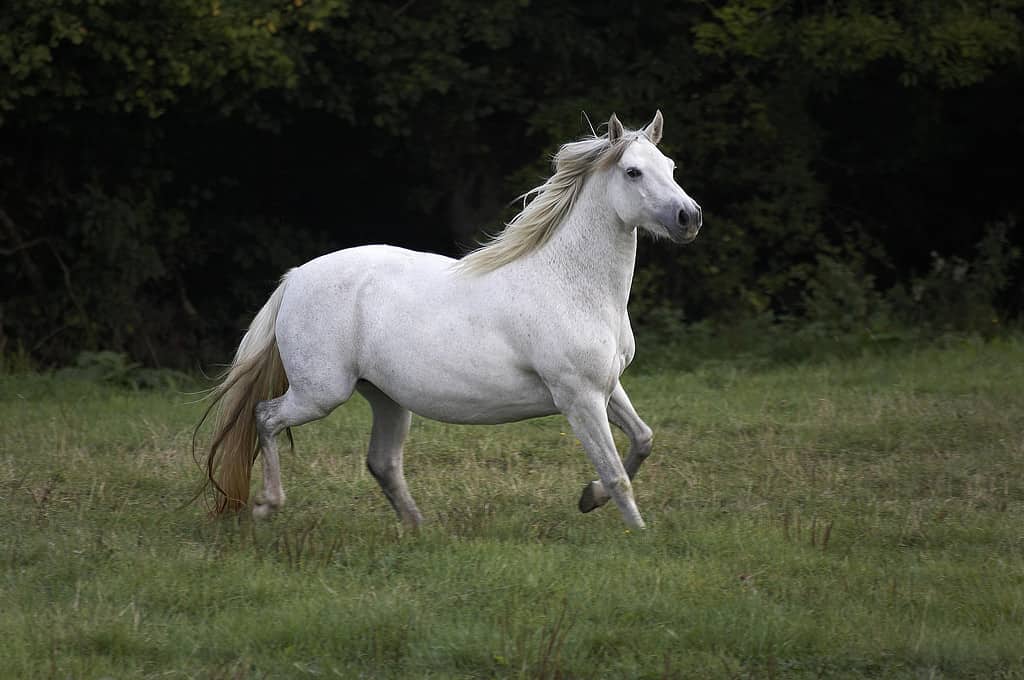
Therapy horses need to be trusting and willing to work, which Connemaras are.
©slowmotiongli/iStock via Getty Images
The Connemara is a pony breed that excels in a variety of disciplines. It makes sense then that they would be good therapy horses. They are trusting, willing, and seem to understand what’s required of them — whether they’re at a competition or walking beside an OT with a rider on their back.
5. Haflingers
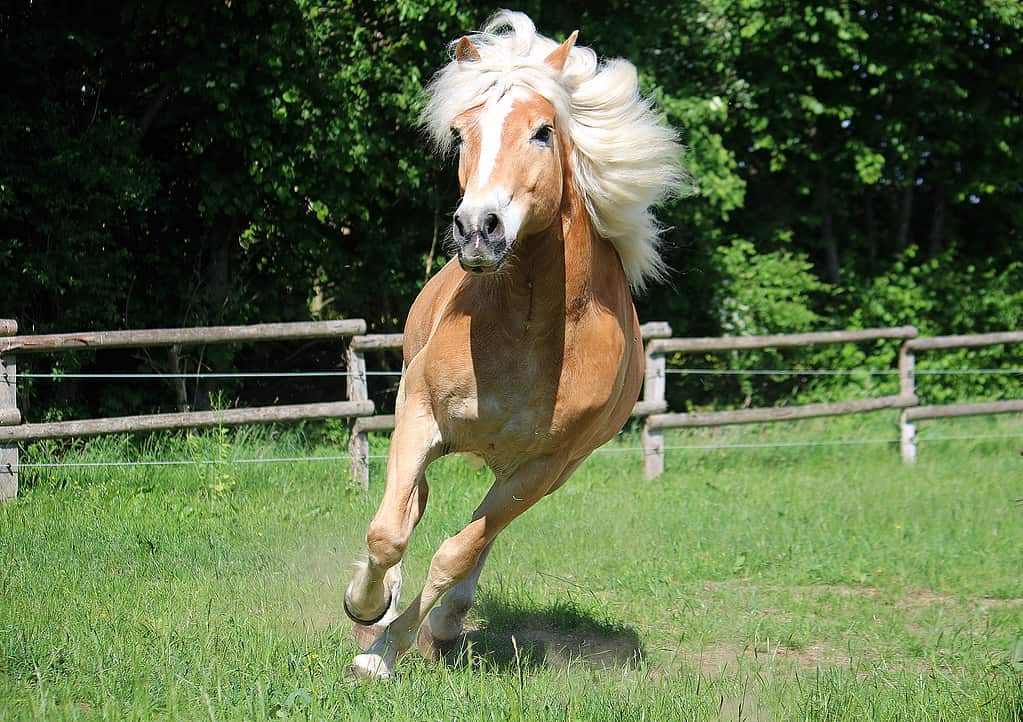
One of the more common breeds used in therapeutic riding programs is the Haflinger.
©BiancaGrueneberg/iStock via Getty Images
All of the breeds on this list are excellent equine therapy horses. But some stand out more than others. The Haflinger is one of those breeds. They are a perfect balance of sensitive and social, which makes them excellent at their jobs. They are one of the most common breeds used in therapy.
4. Appaloosas
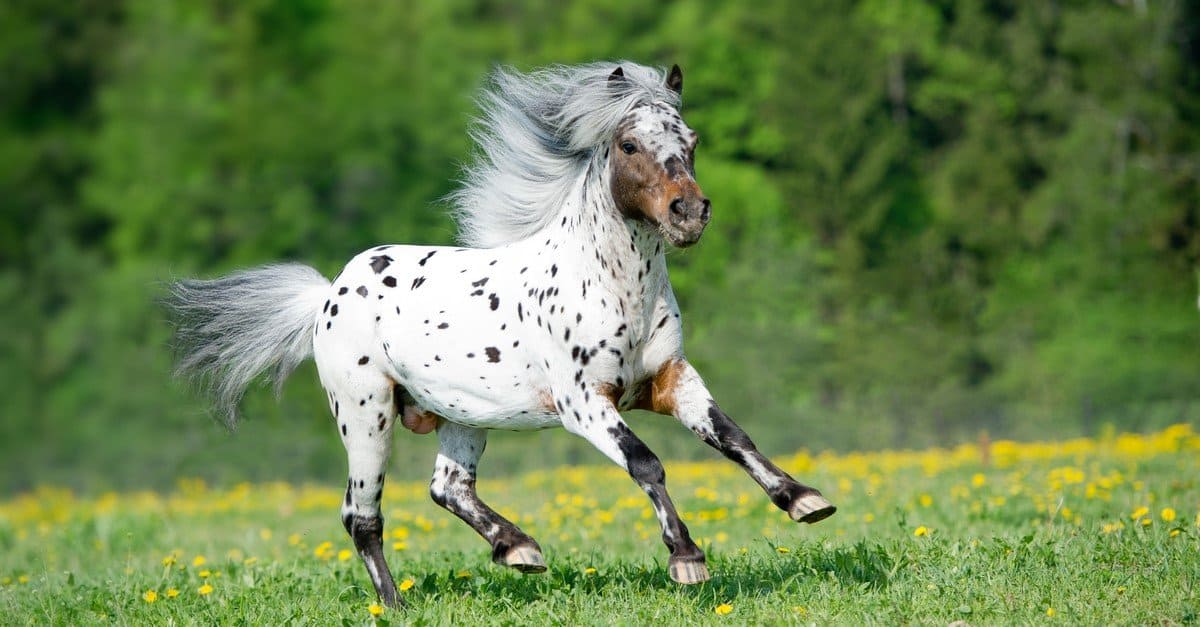
There’s a reason Appaloosas are such a widely loved breed, especially for therapy.
©olgaru79/Shutterstock.com
Equine therapy horses need to be friendly, calm, and patient. The Appaloosa checks all the boxes! They are an adaptable and intelligent breed, which means they commit to what they’re doing and do it well. Assisting in therapy treatments is no exception.
3. Paint Horses
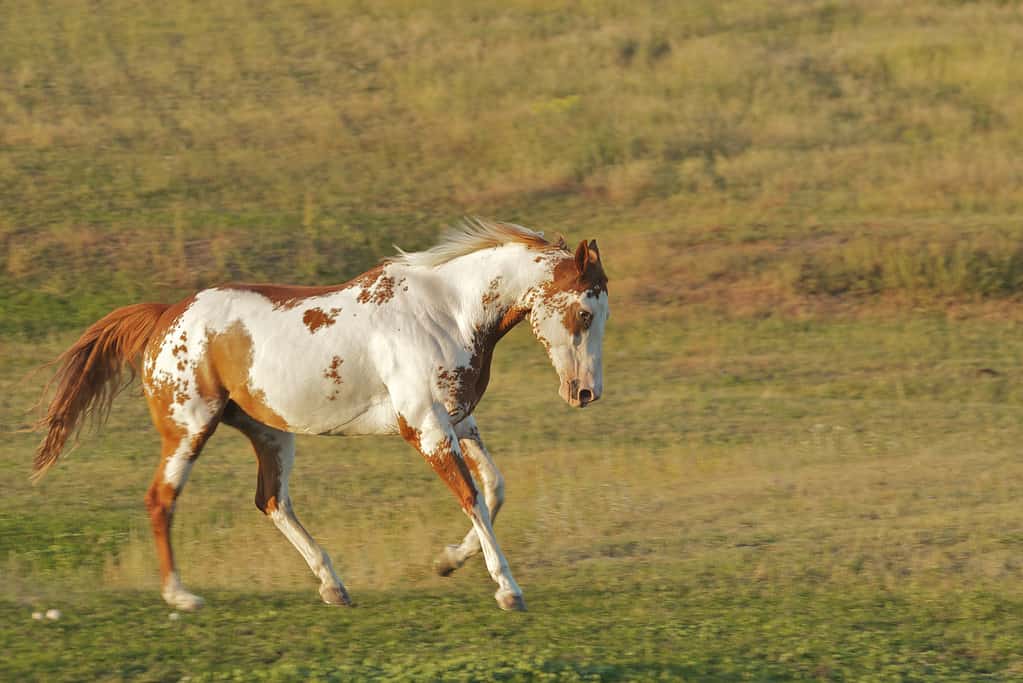
Paints are a popular therapeutic riding horse because of their kind nature and good attitude.
©equigini/iStock via Getty Images
Alongside Appaloosas, you will commonly find Paint Horses used in therapy. With their even temperament and friendly nature, it’s no surprise to see at least a few of them in each program!
2. Miniature Horses
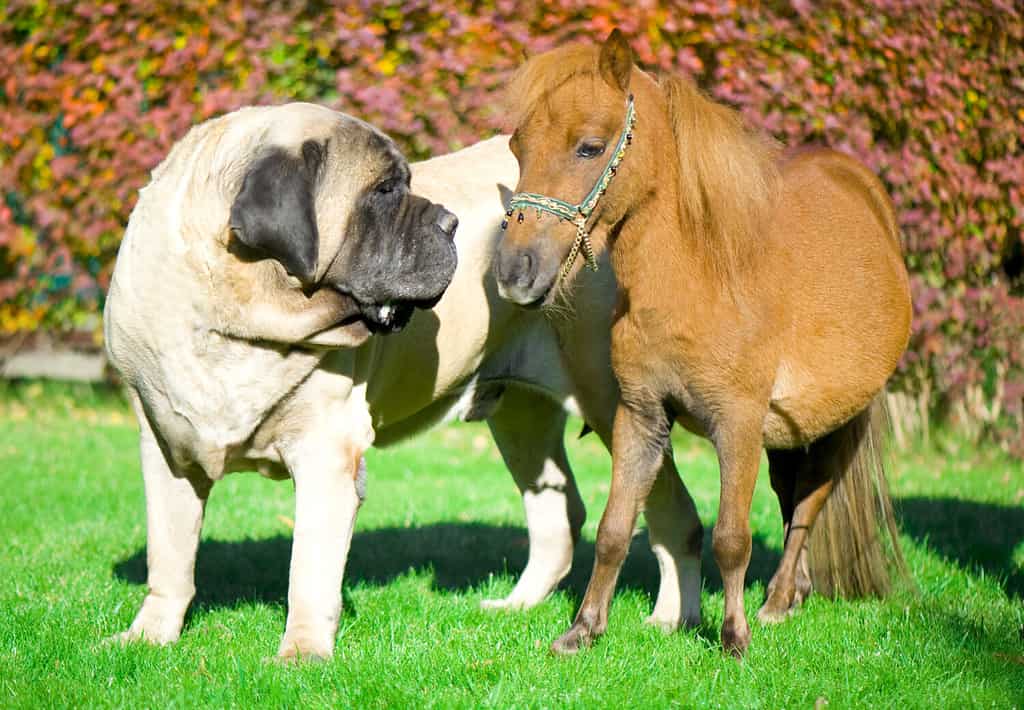
This breed is incredibly social and kind, which is why they’re popular therapy horses.
©Kachalkina Veronika/Shutterstock.com
There are many different types of equine therapy, including animal visitation. This is where Miniature Horses shine! These horses go to schools, libraries, hospitals, or nursing homes to bring light to those they meet. Pocket-sized with a big personality, this breed provides comfort and relief from the challenges of daily life.
1. Quarter Horses
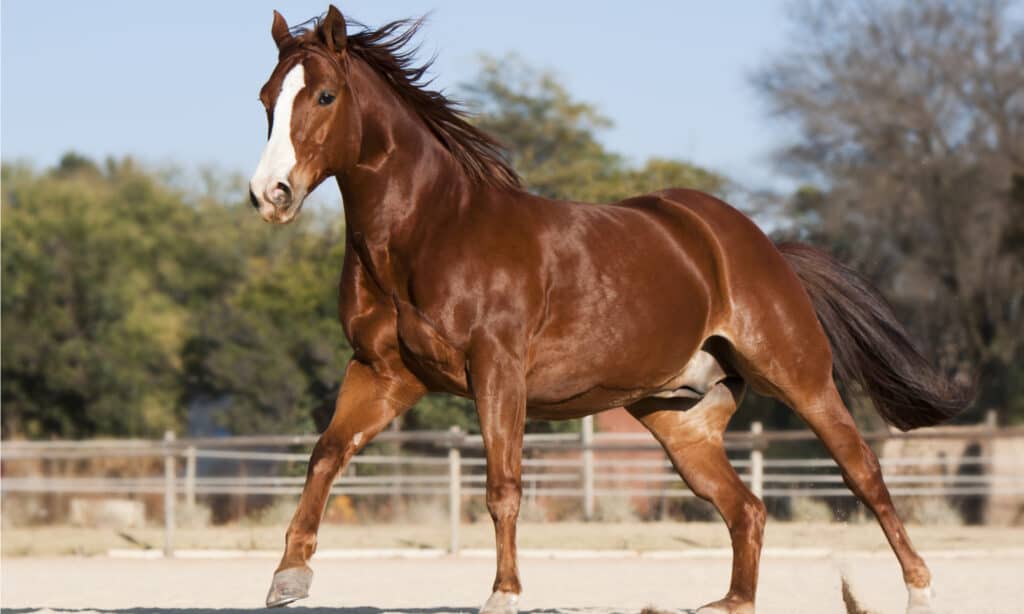
The most common breed used in equine therapy is the Quarter Horse.
©Jaco Wiid/Shutterstock.com
Walk into any therapeutic riding center in the country and you’ll find at least one Quarter Horse. This breed is gentle, intelligent, and aware. Quarter Horses are the most popular horse breed used for equine therapy today.
Thank you for reading! Have some feedback for us? Contact the AZ Animals editorial team.

